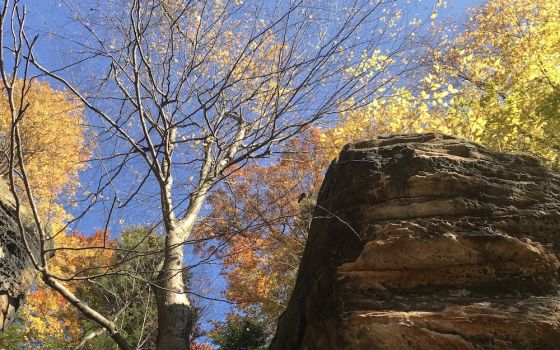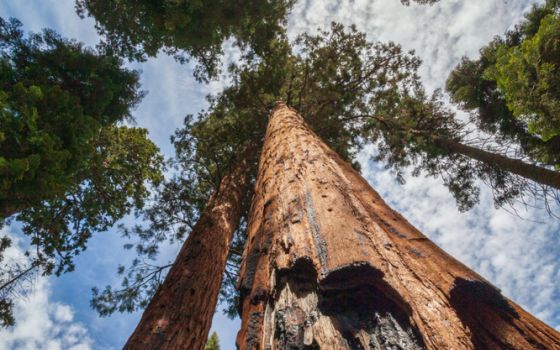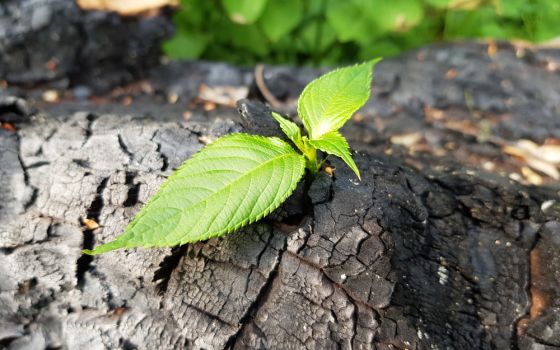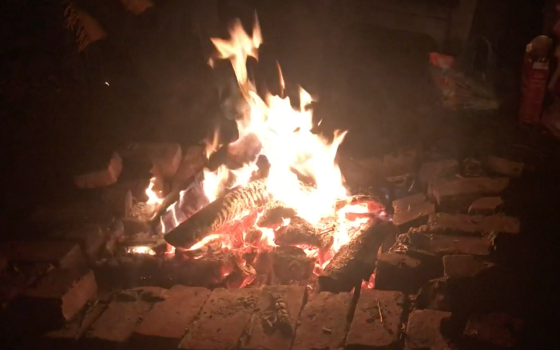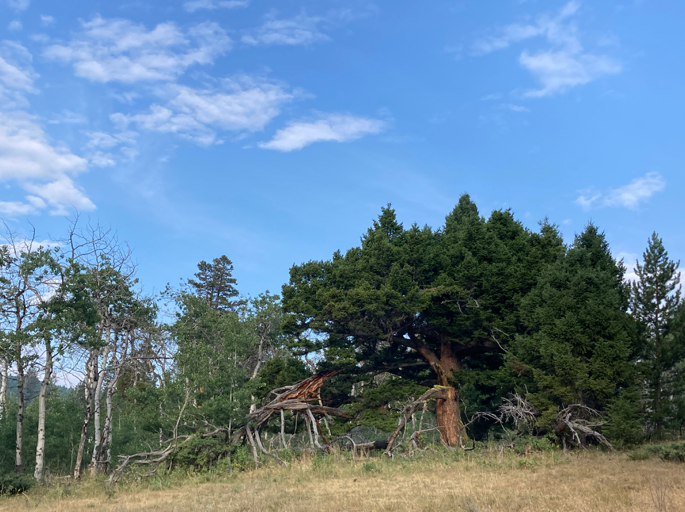
A survivor of a lightning strike, this pine tree thrives between a wildflower meadow and aspen grove near the Continental Divide in Southwestern Montana. (Photo by Michael Downs)
PAUSE
READ
There is so much to be done, and the time is so short. We can proceed, of course, out of grim and angry desperation. But the tasks proceed more easily and productively with a measure of thankfulness for life; it links us to our deeper powers and lets us rest in them.
We have received an inestimable gift. To be alive in this beautiful, self-organizing universe — to participate in the dance of life with senses to perceive it, lungs that breathe it, organs that draw nourishment from it — is a wonder beyond words. It is an extraordinary privilege to be accorded a human life, with self-reflexive consciousness that brings awareness of our own actions and the ability to make choices. It lets us choose to take part in the healing of our world.
— Joanna Macy
REFLECT
In the first reflection for this Season of Creation series, Brenna Davis talked about the places where we live and their important role in nurturing us to care more deeply for our common home.
I am grateful for my particular places along the Continental Divide in Western Montana. In a wildflower meadow behind a cabin my dad built stands a mighty pine tree that survived a lightning strike. Having once been broken and burned, its resilient overstory is now a canopy upon which hawks nest and under which elk (and some lucky humans) rest.
Further north along the Continental Divide, just outside my other particular place in Glacier National Park, bison are experiencing a revival thanks to Indigenous stewardship, after having been nearly exterminated by human greed. Soon they may roam freely again in Glacier Park, even as the glaciers disappear at record rates. One remarkable trait of bison is that when a storm is approaching, rather than run away for cover, they turn and face it.
The storm of climate disruption is coming — or, for more and more places and people, it is already here. In choosing whether or not to face the storm before us, gratitude is not meant to be a tool of denial or naïveté. Rather, it is a grounding force that links us to our deeper powers of knowing what work is ours to do in this critical moment.
In the prayers of Indigenous communities and the world’s great religions, gratitude for the gift of life is a primary wellspring. Catholicism, for example, celebrates the giving of thanks (eucharisteo) as its source and summit. Studies even reveal that gratitude helps us live more sustainably, reins in existential angst about climate change and bolsters our immune system for the challenging days and years ahead.
When you consider being alive on Earth at this time in human history, what are you most grateful for? Rooted in that wellspring of wonder, how do you choose to take part in the healing of our world?
ACT
Grounded in gratitude for those particular places that are special or sacred to you, consider committing time and energy to their preservation and protection. September is National Clean-up Month, and Sept. 18th is World and National Clean-up Day. From coast to coast, organizations and individuals volunteer to clean up parks, trails, beaches, mountains and open spaces. Search your region for opportunities to sign up, or create your own (perhaps drawing inspiration from California's Clean-up Day this year: "Protect Your Happy Place").
pause | read | reflect | act
You can sign up here to receive these reflections every Monday, Wednesday and Friday throughout the Season of Creation, Sept. 1-Oct. 4.
Advertisement




